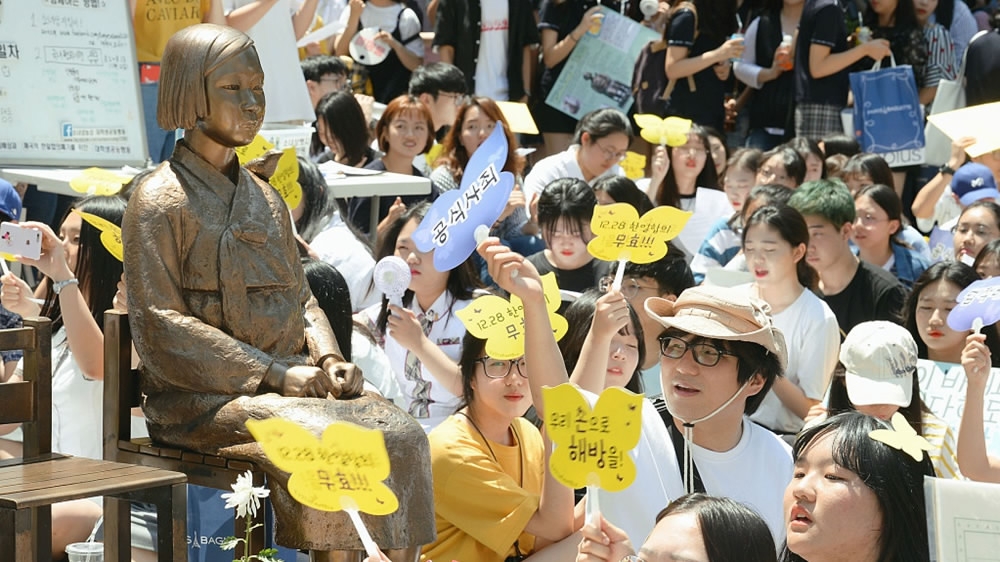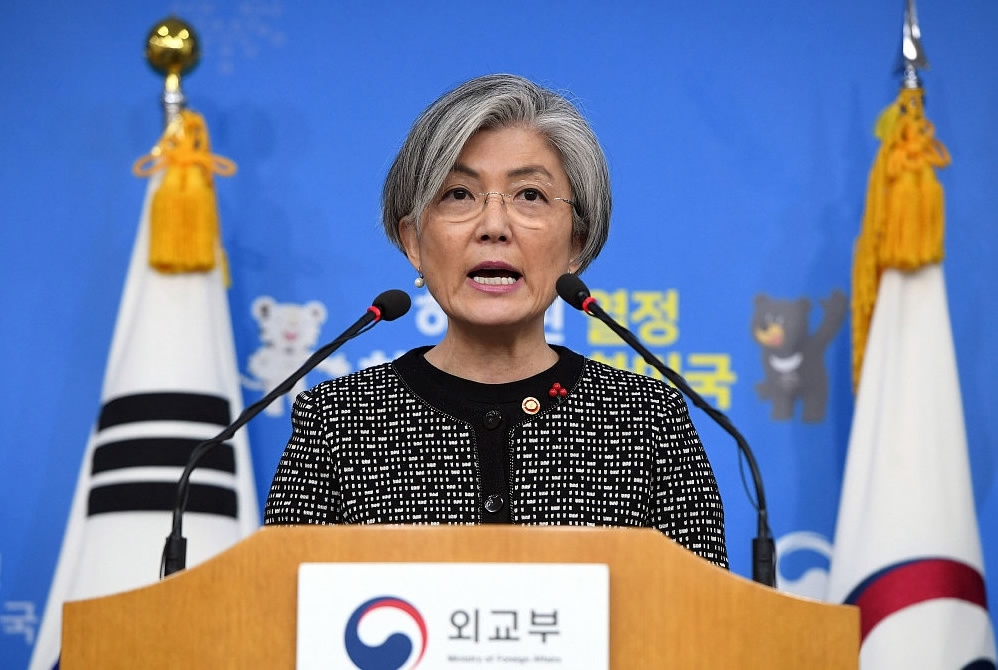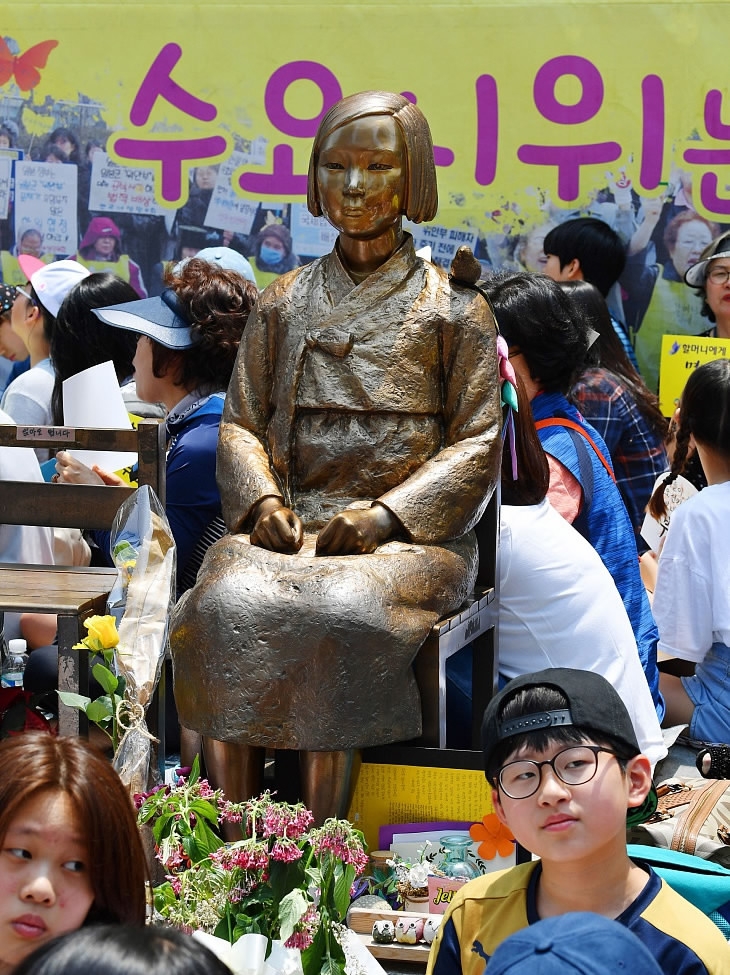
World
22:05, 27-Dec-2017
S. Korea expected to scrap 'comfort women' deal with Japan
By Jack Barton

The South Korean "comfort women" task force has concluded that the issue is unresolved despite a 2015 deal with Japan.
The 2015 agreement between Tokyo and Seoul over compensation for Korean women forced into Japan's wartime military brothels failed to consider the needs of the victims, according to South Korea's Foreign Minister Kang Kyung-wha.
Kang made the remarks Wednesday while revealing the findings of a five month investigation into the deal struck between Japan's Prime Minister Shinzo Abe and former South Korean President Park Geun-hye, who is currently on trial for alleged corruption.

South Korean Foreign Minister Kang Kyung-wha speaks before a briefing of a special task force for investigating the 2015 South Korea-Japan agreement over South Korea's "comfort women" issue at the Foreign Ministry in Seoul, South Korea, December 27, 2017. /VCG Photo
South Korean Foreign Minister Kang Kyung-wha speaks before a briefing of a special task force for investigating the 2015 South Korea-Japan agreement over South Korea's "comfort women" issue at the Foreign Ministry in Seoul, South Korea, December 27, 2017. /VCG Photo
"Based on the findings the government will gather opinions from the victims and others involved, moving forward with a focus placed on a victims-centered approach," said Kang.
Under the deal Japan agreed to pay the equivalent of almost nine million US dollars to a foundation assisting survivors, known euphemistically in Japan as "comfort women," who were forced into sexual slavery before and during WWII.
The agreement included an apology for wartime atrocities by Japan, whose officials then stated the issue had been "finally and irreversibly" resolved.
South Korean critics said the apology was insincere and had been orchestrated without the consent, or even the knowledge, of the women involved, sentiments echoed in the task force report.
"A victims-centered approach, which has become the norm when it comes to the human rights of women in times of war, has not been sufficiently reflected and the deal was reached through give-and-take negotiations like an ordinary diplomatic agenda," the task force stated in its 31-page conclusion.

South Koreans gather around a bronze statue of a young girl symbolizing Korean "comfort women" forced to work in wartime Japanese military brothels, near the Japanese embassy in Seoul, South Korea, June 21, 2017. /VCG Photo
South Koreans gather around a bronze statue of a young girl symbolizing Korean "comfort women" forced to work in wartime Japanese military brothels, near the Japanese embassy in Seoul, South Korea, June 21, 2017. /VCG Photo
South Korea's President Moon Jae-in ordered a review of the heavily criticized deal five months ago, setting up the task force composed of government officials and private sector experts, including a former journalist who had been advising Moon on social issues.
The task force was overseen by Foreign Minister Kang Kyung-wha.
Moon is expected to decide whether to tear up the agreement sometime early next year, though the expectation is that it will be after a visit by Abe and the conclusion of the Pyeongchang Winter Olympics in February.
A dispute over "comfort women" statues placed outside Japan's embassy in Seoul, and other locations, led to Tokyo recalling its ambassador in January.
The expectation is that the government will scrap the agreement though Kang said that, "Action will be taken carefully in consideration of any impact that it could have on the relations between South Korea and Japan."
The issue, which Japan insists will not be re-visited, is believed to be the key obstacle to closer cooperation between Tokyo and Seoul in dealing with the Democratic People's Republic of Korea's nuclear and missile programs.
953km

SITEMAP
Copyright © 2018 CGTN. Beijing ICP prepared NO.16065310-3
Copyright © 2018 CGTN. Beijing ICP prepared NO.16065310-3